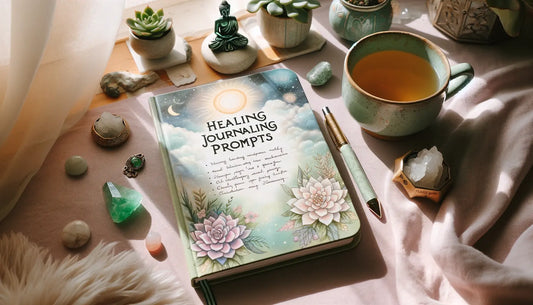Today, we're all about paperless. We do everything online and don't want to spend any more time creating a calendar than we have to. But it turns out that the old-fashioned medium might be better for your productivity and organization than you think. Here are 12 reasons why you shold switch back to a paper based calendar or planner:
1. You can touch, feel and smell paper.
You can touch and feel the paper.
A digital calendar is obviously not an object you can touch or feel, but a physical paper calendar can be touched and smelled. This may sound silly, but think about how many times you’ve felt nostalgic for an old photo album or scrapbook. Paper has a certain quality that digital does not have—it’s tangible. It makes sense that we would want to use something with more of this “feel good” element than something that feels cold and distant to us!
2. You can color code each calendar entry with multiple colors.
Color coding is a powerful tool for organization. You can use a different color for each person or project and categorize events by their type, such as meetings, birthdays and anniversaries.
This makes it easy to see at a glance if you have any conflicts in your schedule that day or week.
3. It is a physical object that you will see more than once an hour.
When you have a paper-based calendar, you can see it more than once an hour. This helps keep you focused on the task at hand since it’s not just in your head or on your computer screen that may be covered by other windows and applications. Your mind knows that seeing your calendar will help you stay focused on the task at hand.
This is important because as humans, we tend to get distracted easily which is why digital calendars are so popular these days. However, if you want to increase productivity and reduce stress levels then getting back into paper-based planning could be the answer for you!
4. It is a full page that does not need to be adjusted to fit on the screen.
One of the biggest advantages to using a paper calendar is that it's a full page. You can see your whole schedule at once, and you don't have to scroll or zoom in to get a good view of the entire month. The digital calendars I've seen are usually shrunken down so they'll fit on the screen, but this makes it harder for me to make sure I'm writing down all my appointments correctly. With my paper calendar, I can write out everything in one place without having to worry about messing up because it won't fit on my screen!
5. It includes all days in the year (365) instead of just a few that fit on the screen.
It includes all days in the year (365) instead of just a few that fit on the screen. You can see every day at once, which means you're less likely to miss things or forget about them. No more scrolling through months and years trying to find something important!
The calendar is easy to read and understand. It's also easier on your eyes because there's no glare from a screen, so it doesn't fatigue as quickly as digital calendars do over time.
6. You can change it at any time without being connected to WiFi or a network.
You can change it at any time without being connected to WiFi or a network. This means you can make changes and additions as they come up, without worrying about having to wait until you are next connected.
This may not be such a big deal for some people, but if your calendar is your main method of scheduling appointments and tasks then the ability to modify it on the fly can be very handy.
7. It allows you to make non-linear progress instead of forcing you to enter each line in its proper order.
One of the most exciting things about a paper-based calendar is that it allows you to make non-linear progress. You don’t have to enter each line in its proper order, or even at all. This freedom can be incredibly useful when you want to make sure that you are covering every aspect of your project, but don’t know how exactly it will all come together.
8. It is easily accessible by anyone in your life at any time of day.
Paper calendars are, by nature, more accessible than digital ones. They can be shared with colleagues, friends and family in ways that digital calendars cannot. For example, if you want to coordinate a meeting with someone who lives far away or works many hours away from you, it’s much easier to share a paper calendar than it is to send an invite through email or text message (which may be ignored).
9. You can add notes and pictures directly to your calendar pages.
Paper calendars are great for jotting down notes and reminders. They're also a good place to stick pictures, like photos of your family or friends. You can add anything you want to your calendar pages - they're all yours!
This is especially helpful if you have several events coming up that need some more information than just the date. For example, if your child has an upcoming dance recital, writing "dance recital" on their calendar page isn't going to be enough! Instead, write down what time they need to leave and when they'll return so you don't forget any important details. You can even add the printed invitation.
10. It will not automatically erase old events when a new year rolls around.
And while you’re at it, also make sure that your calendar is not going to automatically erase old events when a new year rolls around.
With a paper based calendar, you can see what is coming up in the future without having to scroll through multiple days or weeks. All of your plans are right there in front of you and it’s easy to see everything at once without having to go hunting for something specific in different places on different days.
11. You do not need a class, tutorial, or tech support to figure out how to use it effectively and efficiently.
With a paper calendar, you do not need to learn how to use it effectively and efficiently. You can simply start using it without any training or instructions. You do not need a class, tutorial, or tech support to figure out how to use it effectively and efficiently.
12. There is no learning curve when it comes to paper calendars - they are simple, easy and straightforward for everyone. Takeaway: Switch back to paper calendars for easy access, no learning curve and organizational efficiency!
You are going to love the simplicity of a paper calendar. You will be able to use it with ease, and you won’t have to worry about learning any new functions or software. The best part is that everyone can access this calendar, so there’s no need for everyone in your family to get their own digital calendars!
When it comes down to it, paper calendars are just better than digital calendars when it comes to ease-of-use. Not only do they provide easy access, but they also don’t require any sort of learning curve like a digital calendar would ask from its users. Just give them some paper and pencils!
That makes these items particularly helpful if your daily schedule changes regularly (e.g., every morning). By using something like Post-it notes instead of writing on your wall directly (or worse yet - trying not forget things!), then all you've got left do is peel off those post-its when they're no longer useful anymore!
Conclusion
The bottom line is that a paper calendar might be the best option for your personal or professional use. You can use one of these calendars to keep track of important dates, appointments and deadlines without having to worry about losing or damaging them because they are made out of paper. If you want something that's easy-to-use but also looks nice enough on your wall then this might be perfect for you! Check out our paper based planners to get started.
Photo by Jess Bailey on Unsplash



